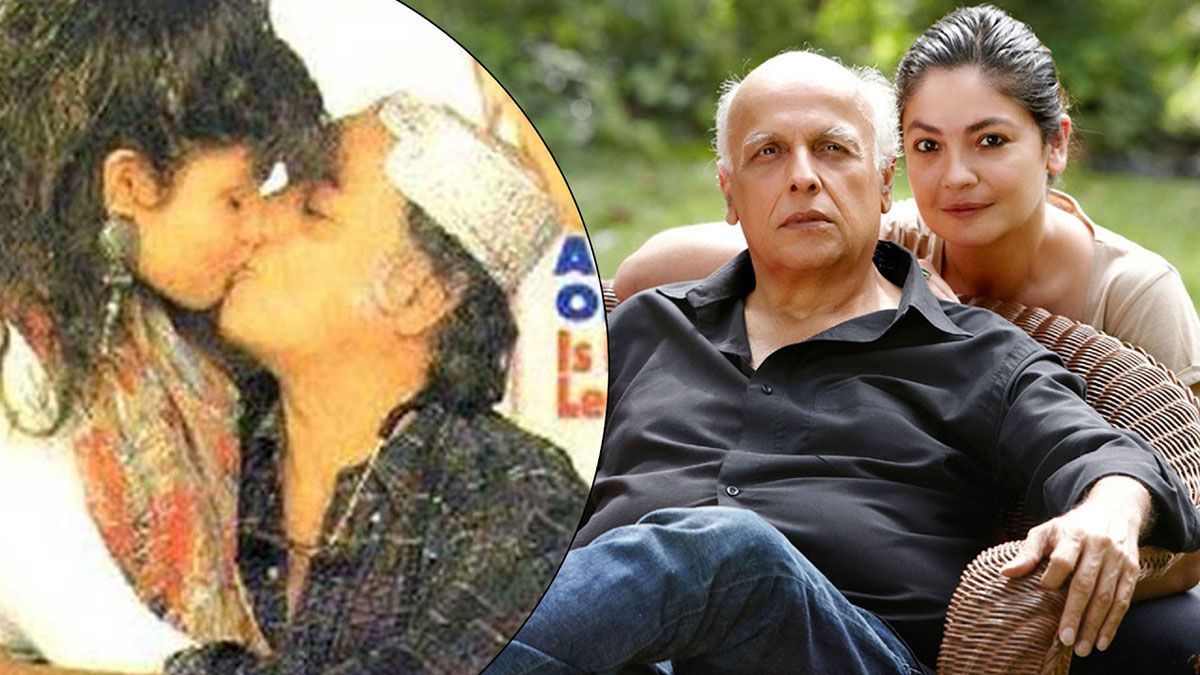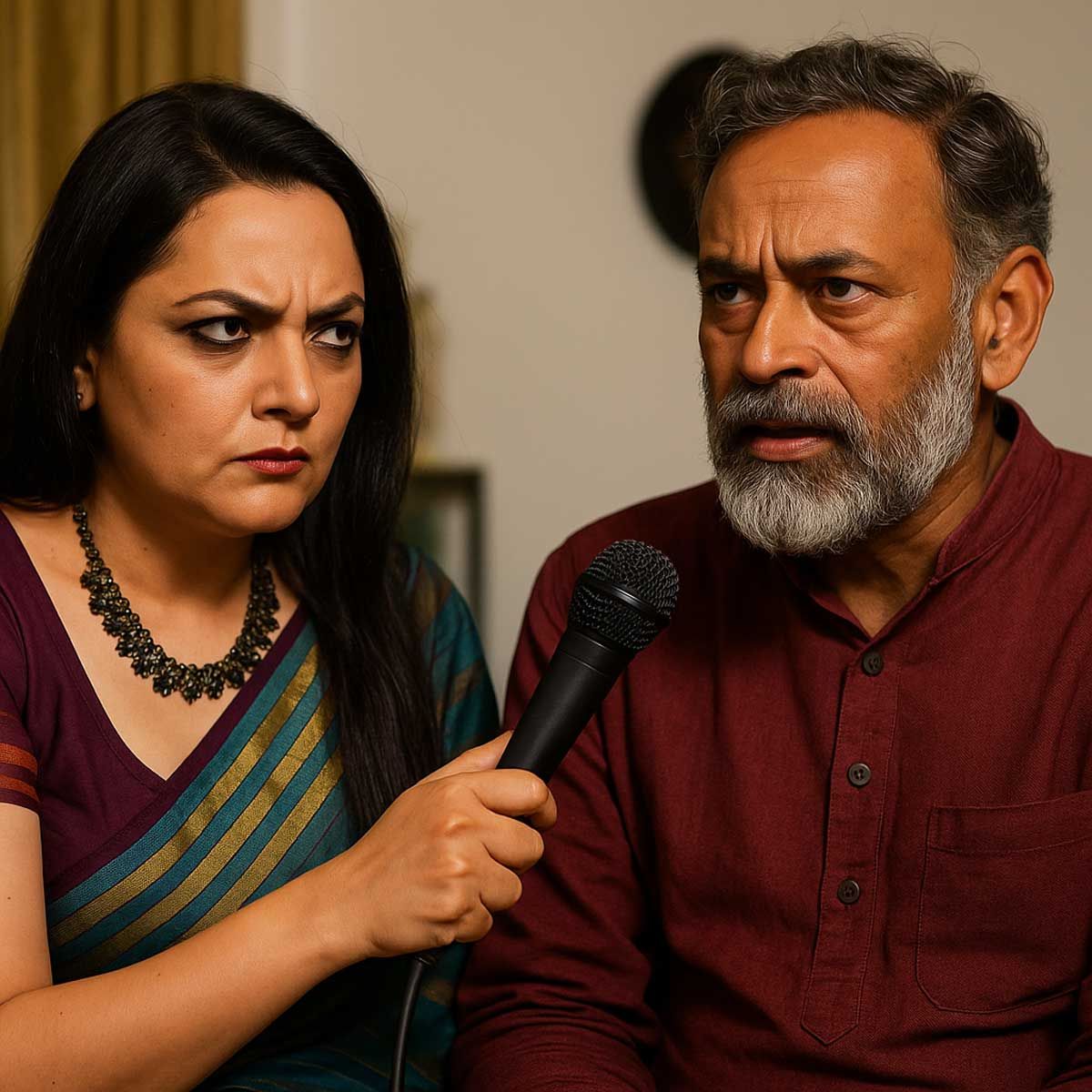More Coverage
Twitter Coverage
Satyaagrah
Written on
Satyaagrah
Written on
Satyaagrah
Written on
Satyaagrah
Written on
Satyaagrah
Written on
JOIN SATYAAGRAH SOCIAL MEDIA
Manyavar commercial featuring Alia Bhatt vilifies Hindu wedding ritual Kanyadaan: Why not object Western practice of ‘giving away the bride’ and Nikah (marriage contract)

ttacking Hindu rituals in the garb of making a feminist point has become a trend these days and multiple brands have been hopping on the bash-Hindu-rituals bandwagon. Taking no notes from Tanishq’s ad fiascos, clothing brand Manyavar took to hurting Hindu religious sentiments through their latest commercial.
With Alia Bhatt as the brand ambassador of the festive wear brand, the ad takes a dig at the sacred Hindu marriage ritual of Kanyadaan. Alia Bhatt is facing some serious flak on social media with the netizens questioning the modern spin to conventional rituals.
The ad states that the Hindu ritual of Kanyadaan should be redefined as Kanyamaan. Mohey’s new advertisement shows Alia Bhatt questioning the conventional Hindu marriage system wherein families ‘give away’ their daughters to another family they wed in.
“Everyone said she is a ‘paraya dhan’. Don’t spoil her too much but he did not pay heed to such people. But at the same time, he did not say that I am neither ‘parayi’ nor ‘dhan”, Bhatt is seen saying in the 1 minute 40-second-long ad. “Am I an object to be separated, become a paraiah and be given away to someone else? Why only Kanyadaan? New idea is to believe in Kanyamaan,” the Raazi actor is seen as saying in the ad.
Soon after the ad was released on Manyavar’s official YouTube page, netizens started questioning the brand’s latest ad campaign against the Hindu ritual of Kanyadaan. “First it was Hindu festival and now it’s our practices and customs which are the target of propaganda, cheap PR and adverts. Enough is Enough,” one of the users commented.
The company, in a detailed statement, said: “In India, weddings are all about rituals and traditions that bring about a happy union. These age-old rituals have been an intrinsic part of our society and one of the most important being ‘Kanyadaan’. Harping upon this ritual and the conventional thought behind it, Mohey’s recent DVC featuring Alia Bhatt tries to promote a more inclusive and equal space for women in marriage and in life.” The company statement said completely adhering to traditions and being reverent to rituals, this film takes a modern stance on the conventional belief.
 |
Alia Bhatt said she believes in this thought and it’s very close to her heart. “I am glad that I could be a part of this film and convey a message that might bring about a positive change in society.” Vedant Modi, CMO, Manyavar, said its brand Mohey has always symbolised progressive women. “Through this commercial, we have tried to bring about a shift in the mindset of the general populace while being respectful and fervent towards our traditions and rituals.”
Here’s how the internet reacted on the latest Mohey ad featuring actress Alia Bhatt
|
Twitter went ballistic after the outcoming of the ad and there were a set of people who found the idea against hindu ideals. They also had a problem with how every brand criticises Hindu customs only.
|
Somebody even wrote “The very industry that objectifies women in their films, web series and reality shows is preaching about “kanyamaan” Wish they would practise what they preach then women would automatically get respect.”
|
Distortion of Kanyadaan
The Kanyadaan has been continued from the times of antiquity in Bharat; the Sanskrit word roughly translates into ‘giving away the daughter’. During the Hindu marriage ceremony, the groom is looked upon as Bhagwan Vishnu and the daughter is hailed as Maa Lakshmi, the goddess of wealth and prosperity.
By “giving away” his daughter, the father is bestowing upon the groom the most valued and precious part of his self, his daughter. Also, through Kanyadaan, Lakshmi is united with Vishnu. In Hindu belief, Kanyadaan is said to be one of the highest forms of Dāna. Note: Dāna is not ‘donation’, but something far deeper in Hindu and other Dharmic traditions.
The word “Daan” is not limited to materialistic possessions as Alia Bhatt alludes in the ad. As per Bharatiya tradition, every precious, dear and virtuous element can be given as a “daan”, like vidyadaan, jeevandaan, and as introduced in recent culture, raktadaan and angdaan. An adopted son is called “Dattak Putra”, meaning, the putra (son) has been gotten as a Daan from his parents to the adopting parents. But, understandably, ad makers of questionable knowledge to fathom the depth of Hindu Dharma traditions inherited by generations through thousands of years.
The mentally colonised HINOs (Hindu in Name Only) involved in making of this ad should find a few minutes listening to scholar Nityananda Misra; maybe it will undo some of the damage done by trite Western theories drilled into their minds:
|
While the above is more of a religious account of Kanyadaan, another way to understand this ritual is that the father figuratively gives the responsibility of his daughter to the groom with the hope and expectation that the groom will keep his daughter happy for life. Now you can look at this as a sign of a father’s love for his daughter, or through an ultra-feminist lens as a patriarchal practice. Btw, the groom’s mother also believes she is handing her son into the care of his future wife – but that too can be interpreted as patriarchy by the leftist/HINO cabal!
Others pointed out the stereotyping of Hindus through contrived, scripted narrations which were liberally sprinkled in the Manyawar ad – just another example of deracinated HINOs trying to ‘civilize the native populace’!
Silence on non-Hindu rituals?
Why does a HINO denigrate Kanyadaan but swoon over everything related to a Christian marriage, from the bridal gown, to wedding cakes, AND the Western practise of ‘giving away the bride’ where the girl’s father walks her down the Church aisle?
 |
And what about Islamic Nikah, which is actually a marriage contract where the groom pays money (mehr) to the bride. A tad too transactional, perhaps? And what about the misogynistic practises like Triple Talaq (it is only instant triple tralaq that has been banned), Nikah Halala and Nikah mut’ah (temporary marriages)? Why aren’t our brave, progressive HINO/leftist ad-makers trying to affect change where it is really needed? But maybe they don’t want to see their studios burnt down and offices stone pelted, so pick on the easy target: Hindus.
When I searched the meaning of Islam on WikiIslam (From WikiIslam, the online resource on Islam), below mentioned is the actual meaning.
The Arabic term nikah (or the root n-k-h) as meaning "sexual intercourse", or the contract of sexual intercourse, or marriage as a contract for sexual intercourse (for the payment received by the bride for nikah, see Purpose of the Mahr)
The New Encyclopedia of Islam
Literally the act of sexual intercourse, nikah is the term by which marriage is referred to in the Qur'an. Islamic law defines nikah as a civil contract whose main function is to render sexual relations between a man and woman licit. Any sexual relations outside the nikah contract constitute the crime of zina (illicit sexual relations) and are subject to punishment. In practice, nikah is enacted in a ceremony intertwined with religious symbolism and rituals such as the recitation of al-Fatiha, the first verse of the Qur'an, usually performed by religious functionaries, although Islamic law does not positively prescribe any service.
Women and international human rights law
In the medieval treatises, marriage was known as nikah, referring to licit sexual intercourse, and the marriage contract was understood as an agreement permitting the husband sexual access to the wife in return for his commitment to pay …
(Kelly Dawn Askin, Dorean M. Koenig, Women and international human rights law: vol.3, Transnational Pub, 2008)
Muslim women in law and society: annotated translation of al-Tahir al Haddad al-Ṭāhir Ḥaddād
The Arabic word for marriage is zawaj or nikah, the latter being derived from the verb nakaha (‘to have sexual intercourse’): cf. Qur. II: 230. Nikah is also used to denote the marriage contract (cf. ‘aqd, ‘aqd qiran).
Sidi Khalil, the prominent fourteenth-century Sunni Maliki jurist
When a woman marries, she sells a part of her person. In the market one buys merchandise, in marriage the husband buys the genital arvum mulieris. As in any other bargain and sale, only useful and ritually clean objects may be given in dower.
Mahr (Marital Price)
The Mahr (مهر) is a contract fee paid for by the groom to the bride in an Islamic marriage (see The Meaning of Nikah). Its purpose within Islamic law, as shown through the Islamic texts themselves and the rulings of fiqh, is to compensate the woman for the privilege of consummating the marriage through sexual intercourse with her. The mahr is an obligatory part of Islamic law. In the abscence of a mahr, the marriage is not valid.
The custom itself comes from pre-Islamic tribal times. In those times, the mahr would be paid from the bridegroom to the wali or guardian of the bride. Islam's laws change this custom by specifying the the mahr belongs directly to her. It is thus sui generis unlike the dowry or dower from western arranged marriage traditions. Islamic law has specifications about how and when it is to be given, and how these arrangements are to be made and taken care of in all cases, and there are many hadith traditions relating the prophets example on the subject. Although the explanations of the subject vary, the purpose of the mahr as explained by the Islamic texts is clear; it is a payment from a man to a woman; payment in full for the future sexual relations (nikah) the bridegroom will enjoy with her. This is illustrated by the requirement for a mahr in temporary "marriages", the statements of Prophet Muhammad, and the fact that a mahr cannot be taken back (except under extenuating circumstances) because the man has availed himself of the service for which it was payment.
Responsibilities of the Woman
In return for the mahr, the woman gives herself to her husband in the Islamic marriage contract. Her obedience to him is mandatory. If she does not fulfill his need for sex, barring a physical impairment or ritual cleanliness obligation of religion, it is the husbands right to force her to engage in sexual relations with him, and this is not considered rape. This is based clearly on the Qur'an:
|
Unfortunately, Hindu parents do not invest time in educating their children about the significance of Hindu rituals and they often grow up believing the contorted narrations provided by groups of left-leaning anti-Hindu institutions pervading all walks of life, from academia to popular culture.
Conning Hindus
This is not the first time the Kanyadaan has been vilified by pseudo-flagbearers of morality and gender equality; the sanctified Hindu custom has been attacked multiple times before. And these attacks always come from those who have lost connect with their roots, or those who nurse hate for Dharma but adopt the mask of social reform
Makers of the Manyavar commercial have tried to exploit Bollywood celebrity Alia Bhatt’s popularity among youngsters and attempted to indoctrinate young Hindu minds against their traditions. But Alia Bhatt is neither a Hindu nor a Bharatiya.
The actress has a British passport like her mother Soni Razdan. Her father Mahesh Bhatt had converted to Islam in order to marry Soni as his second wife -so Soni Razdan (daughter of a German mother and a Kashmiri Pandit father) would have converted to Islam too for the marriage as sharia law doesn’t allow a Muslim man or woman to marry a polytheist Hindu. Alia’s sister’s name is Shaheen Bhatt, which indicates the socio-religious milieu that their parents raised the children in.
Mahesh Bhatt was born to a Hindu father but raised by his Muslim mother after the separation of his parents. After a dalliance for some years with Osho, he has now been revealed as a rabid Hindu-hater – a man with an Islamist worldview who praises terror-accused televangelist Zakir Naik, propagates the conspiracy theory that RSS was behind the 26/11 Mumbai terror attack, and even labelled Hindu-majority Bharat as ‘a land of the blind’ and asked Muslims to ‘fight for justice’.
His son Rahul Bhatt, from his first wife (Lorraine Bright aka “Kiran Bhatt”), was a close friend of Pakistani-America jihadi, David Coleman Headley, born Daood Sayed Gilani, who played a vital role in plotting the 2008 Mumbai terror attacks and is presently in a US jail. Mahesh Bhatt had once infamously expressed the desire to marry his elder kanya Pooja Bhatt if she had not been his daughter, and has been photographed while locking lips with her.
Not to be left behind, Soni Razdan, told a newspaper that she will be “much happier” living in Pakistan. Alia Bhatt herself supported the violent anti-CAA protests and is also a supporter of Islamist ‘journalist’ and serial fake news peddler Rana Ayyub.
So the daughter of an Islamist who brazenly flaunts his incestuous tendencies should be the last choice for sending out any message about any Hindu ritual. If anything Alia Bhatt should be the face of protest against several misogynistic practices prevalent in her father’s chosen faith. But that requires real strength of convictions and ability to ‘spead truth to power’!
Another non-Hindu Bollywood celebrity who recently spoke out against the “regressive custom of Kanyadaan” is actress Dia Mirza. Born to a Christian father, adopted and raised by her mother’s second husband who is a Muslim, Dia Mirza was pregnant at the time of her second wedding. Such people should refrain from commenting about rituals they have no understanding of, and frankly no right to practice.
Conclusion
Hindu festivals have always been an eyesore for the left-liberal cabal. The holy practices and symbols of the Vedic marriage are now being openly targeted. The sindoor, mangalsutra, bichhiya and other adornments that add to the beauty of a Hindu blissfully married woman are slighted as signs of ‘patriarchy’ by the very clique that sees empowerment in Hijab and a black robe from top to bottom. This is an institutionalized assault on Hindu Dharma that can only be countered by instilling true Dharmik knowledge in youth.
Meanwhile, we would encourage Hindus to make their strong opposition known to Manyawar/Mohey owners Ravi Modi and parent company Vedant Fashions Ltd. Calling yourself a ‘celebration wear brand’ and then spitting on Hindu weddings is neither smart, nor wise.
 Support Us
Support Us
Satyagraha was born from the heart of our land, with an undying aim to unveil the true essence of Bharat. It seeks to illuminate the hidden tales of our valiant freedom fighters and the rich chronicles that haven't yet sung their complete melody in the mainstream.
While platforms like NDTV and 'The Wire' effortlessly garner funds under the banner of safeguarding democracy, we at Satyagraha walk a different path. Our strength and resonance come from you. In this journey to weave a stronger Bharat, every little contribution amplifies our voice. Let's come together, contribute as you can, and champion the true spirit of our nation.
 |  |  |
| ICICI Bank of Satyaagrah | Razorpay Bank of Satyaagrah | PayPal Bank of Satyaagrah - For International Payments |
If all above doesn't work, then try the LINK below:
Please share the article on other platforms
DISCLAIMER: The author is solely responsible for the views expressed in this article. The author carries the responsibility for citing and/or licensing of images utilized within the text. The website also frequently uses non-commercial images for representational purposes only in line with the article. We are not responsible for the authenticity of such images. If some images have a copyright issue, we request the person/entity to contact us at This email address is being protected from spambots. You need JavaScript enabled to view it. and we will take the necessary actions to resolve the issue.
Related Articles
- Hindus documented massacres for 1000s of years: Incomplete but indicative History of Attacks on India from 636 AD
- Biggest Wonder of the World : Kitchen of Lord Shri Jagannath
- Why India’s temples must be freed from government control
- An Artisan Heritage Crafts Village: Indigenous Sustainability of Raghurajpur
- Shri Murudeshwar Temple: Home To The World’s Second Tallest Shiva Statue
- Jagannath Temple administration issues clarification on proposed sale of temple lands
- Aatish Taseer shows how his ‘jamaat’ has mastery over playing victim, brands Bollywood pro-Modi even as it remains anti-Hindu
- The forgotten temple village of Bharat: Maluti
- Supreme Court dismisses plea seeking protection of Hindus from the Muslim community in Mewat
- Narasimha Rao govt brought places of Worship Act as a hurdle in reclaiming ancient Hindu heritage destroyed by Muslim invaders
- A new symbol of Hindutva pride, Shri Kashi Vishwanath Temple Corridor
- Culture And Heritage - Meenakshi Temple Madurai
- Indonesia: Sukmawati Sukarnoputri, daughter of Indonesia's first president becomes a Hindu leaving Islam
- Soft-conditioning of Hindu minds to normalize grooming jihad in Bengali TV serial ‘Khorkuto’
- Srikalahasti Temple, Dakshina Kailash




























